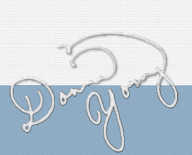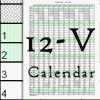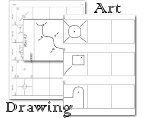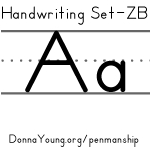Using Your Encyclopedia for Homeschooling
Page Contents: Guides | Encyclopedia Research Guides | Example Topics
 You can use the library and an encyclopedia to make some of
the lessons for social studies, geography, science, health and some
language arts. I am guessing that many of you have at least 2
encyclopedias on CD-ROM and perhaps one old used encyclopedia set, or maybe I am the only one who thinks collecting encyclopedia sets is the best thing ever. I bought 3 used sets at our public library and I "inherited" two sets. Even if
you do not have a set of encyclopedias, you can probably look at the ones that
you need at your public library. There are also the CD-ROM's. I've not seen a new encyclopedia on CD-ROM since 1999 and, at that time, my favorite one was World Book. If none of this is an option for you, don't give it another thought.
You can use the library and an encyclopedia to make some of
the lessons for social studies, geography, science, health and some
language arts. I am guessing that many of you have at least 2
encyclopedias on CD-ROM and perhaps one old used encyclopedia set, or maybe I am the only one who thinks collecting encyclopedia sets is the best thing ever. I bought 3 used sets at our public library and I "inherited" two sets. Even if
you do not have a set of encyclopedias, you can probably look at the ones that
you need at your public library. There are also the CD-ROM's. I've not seen a new encyclopedia on CD-ROM since 1999 and, at that time, my favorite one was World Book. If none of this is an option for you, don't give it another thought.
A guide may be the only other thing that you need to plan a series of lessons, and it possible that you won't need one. Some guides are:
History/Social Studies
- Around the World in 180 Days
- Guides to History Plus by Kathryn Stout
- Let the Authors Speak by Carolyn Hatcher
Science
- Science Scope by Kathryn Stout
Scope and Sequence Guides:
- Homeschoolers Complete Reference Guide by Kay Millow (k-6)
- What Your Child Needs to Know When: An Evaluation Checklist for Grades K-8
World Book's Standards
For your convenience, I have linked World Book standards. You will see an example of a list of basic subject and the objectives for each subject. Worldbook changes the location of these resources too often and so the link might be broken or become broken soon.
a href="http://www.worldbook.com/typical-course-of-study" target="_blank">http://www.worldbook.com/typical-course-of-study.
Link updated 8/30/2011 - it should go to a page that has links to the k-12 course of study. Links are set to open in a new window.
or download this older version of the course of study.
Encyclopedia Research Guides
The best place to start is the Research Guide that comes with the encyclopedia. We have several World Book Encyclopedia sets and one Britannica encyclopedia set. Fortunately three of the sets included the research guide books. If you don't have the research guide book, use the one at the library even if it does not go with the encyclopedia set that you have.
To use the research guide, choose a topic such as nutrition. Look up nutrition in the research guide and it usually will have a list of articles that are about nutrition. Choose the articles that apply to the goals that you have set for the series of lessons.
If you wish to teach your 3rd grader about dental health, look up teeth in the research guide and you should find one or more articles listed about that topic. If you have the World Book encyclopedia, then you might find, depending on which set it is, that they have a Reading and a Study Guide on Teeth.
Using the World Book Encyclopedia on cd-rom
(or almost any brand of encyclopedia)
I have the World Book 1999 Deluxe Cd-Roms. It is just like the printed 1999 books except the cd-roms may not have every single picture. The cd-roms do have an appealing advantage --- multimedia! It has cultural music clips, counting and greetings in many different languages, movies, interactive things, and a zoo! There're timelines too! I can make quizzes for the children and there's a research paper helper that we've not figured out. :)
Topics
Young children that are in grades 1-3 should learn about "Communities." To learn about communities from an encyclopedia look up topics such as:
- Family (and the many articles of families across the world)
- Marriage
- City Planning
- City (be sure to look up ancient cities too)
- Road
- Transportation
- Farm and Farming
- Rural
- Electric Power
- Poverty
- Building Construction
- Park
- Sanitation
- Waste disposal
- L'Enfant, Pierre Charles
Health Topics
This is another topic that children should learn about. You can buy a curriculum or you can use an Encyclopedia.
- Posture
- Health
- Disease (selected parts)
- Epidemic
- Baby
- Bath
- Diet
- Fat
- Fatigue
- Food
- Growth
- Human body (and related articles, such as ears and eyes...)
- Nutrition
- Physical fitness
- Sleep
- Stress
- Teeth
Health Biographies
Biographies gives children a glimpse into what people have accomplished for humanity.
- Barton, Clara
- Curie, Marie Sklodowska
- Dix, Dorothea Lynde
- Fleming, Sir Alexander
- Galen (He discovered that the arteries contain blood.)
The End, thank you for reading - DY. =)



 Make a Sock Bunny
Make a Sock Bunny Printable Christmas Gift Tags
Printable Christmas Gift Tags


